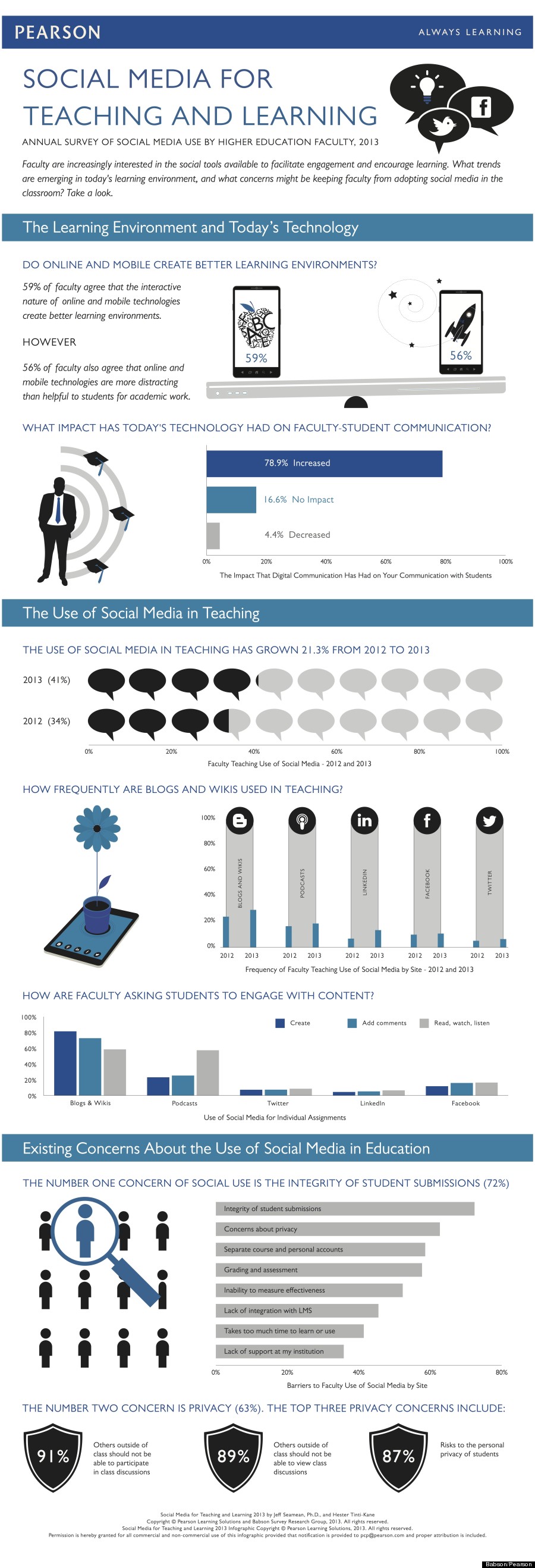This from the Huffington Post:

Professors aren't so different from the regular populace when it comes to their views on social media.Check out results from the Pearson/Babson survey on social media in the infographic below:
Just over 70 percent used social media in their personal lives, a survey released last week by Babson Survey Research Group and Pearson found. This figure mirrors usage among the general population, according to the Pew Research Center.
Babson and Pearson surveyed 8,000 faculty members from all disciplines in higher education for their report, "Social Media for Teaching and Learning."
Faculty personally choose to use Facebook more than any other type of social media outlet, according to the report, but were more likely to use blogs and wikis for classroom assignments.
Less than half of faculty -- 41 percent -- use social media as a tool in class, but that's up from 33.8 percent in last year's survey.
"Faculty are not only expanding their use of social media, but also becoming more sophisticated in their use," Jeff Seaman, co-director of the Babson Survey Research Group, said in a statement. "We see steady growth in adoption year over year; however, there are still great concerns that we hear from every age group, and that holds educators back from full adoption in their teaching."
Faculty cited "integrity of student submissions" and privacy as their main concerns with social media use. Privacy was a large concern among previous surveys of the general population as well.

2 comments:
Concern about others having access reminds me of not letting non-students have access to the school library. Educators are going to have to recognize they have lost the battle on knowledge monopoly. I certainly realize schools/educators have to make a living, but just like musicians who used to worry about multiple cassette recording of their albums eating into their royalties, educators are also going to have to adapt to the new technology landscape.
Just like the libraries and public schools democratized education from its church and landed elite origins, now the internet has made information (and misinformation) accessable to anyone 24-7. It is not a matter of access as much as it is about validation for authentic application. Educators are going to move from institutional providers of knowledge to individual facilitators and gate keepers who personally ensure and authenticate that individuals have skills and knowledge sets.
Hard to say as an old school kind of guy who still likes having all those real books up on my real shelves that I really had to use and read, but we can't put the tech Jeanie back in the bottle I am afraid - not that we should.
I agree with you...almost completely. As I tell my students, information is no longer a scarce commodity.
One quibble however. If educators fought a battle to retain a monopoly on knowledge, I missed it. Surely there were some who resisted change, new technologies and everything else. But my sense is that, by and large, teachers have been among those who embraced the new and looked to bring it into the classroom.
Richard Day
Post a Comment